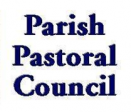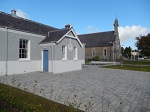Congratulations!
The Christian community wishes you every blessing and happiness. Your desire to marry in Church is your invitation to Christ to be at the heart of your relationship. This is the one day in your lives when you publicly express your love for each other before God in the form of a solemn and sacred vow. To help celebrate this special day, we hope the information on this website will be of help in your planning and preparations. Your local priests are here to help you throughout the various stages of planning and celebrating your wedding day.
When deciding on a date, please bear in mind that: civil and church law requires a minimum of three months notice of your intention to marry. In cases where dispensations are required, a minimum of six months notice of intention to marry is required by the Diocese.
In the Diocese of Meath, a marriage preparation workshop is obligatory. It is conducted by trained facilitators who explore the following areas in preparation for the Sacrament of Marriage.
- Communication
- Conflict
- Commitment
- Church
- Children
To book the workshop, contact Accord Navan.
Tel: 046 902 3146
Fax: 046 907 5100
E-mail: accordnavan@eircom.net
Website: www.accord.ie
There are two churches in Ashbourne Donaghmore Parish:
- Church of the Immaculate Conception, Ashbourne
- St. Patrick’s Church, Donaghmore.
View more information about churches. |
- A new Baptismal Certificate.
- A Confirmation Certificate.
- If you have lived for more than 6 months outside your parish of residence since you were 18 years of age, you need a Letter of Freedom from the respective parish(es).
- If a mixed marriage; permission or a dispensation from the bishop is necessary.
- We advise that you also check the ‘Getting Married’ section of the website of the General Register Office at www.groireland.ie that provides general information on the solemnisation and registration (in the civil records) of a valid marriage in Ireland.
- A non-Catholic requires a baptismal certificate and an affidavit stating that he/she was never married before in a civil or religious ceremony.
- A minimum of three months notice must be given to the Civil Registrar of Marriages in Navan. (Tel: 046 23209)
- Your local priest should complete with you your Prenuptial Enquiry Papers which both you and your partner must sign.
There are two kinds of ceremony in the Catholic Church: The Rite of Marriage within the Nuptial Mass or A Wedding Service.
Your wedding day is a celebration of your love for one another, and an act of faith as a Christian. If faith in God and being a member of the Church do not figure in your lives as important, and you are not ready to let them be part of your lives at this time, this should help determine style/type of celebration as a Wedding Service where the Eucharist and sharing in communion is omitted. If you want your wedding ceremony to reflect your faith and your lives, couples should consider the Nuptial Mass.
In the case of a “Mixed marriage” couples discuss this with their priest.
During the days before the marriage, it is recommended to couples to prepare spiritually by receiving the Sacrament of Reconciliation.
No Pop Music or pre-recorded music should be used during the Church ceremony. There is a rich fund of appropriate and beautiful church music available in many different styles (see www.gettingmarried.ie).
Wedding Rite & General Etiquette
- Only the approved Rite of Marriage can be used in the ceremony.
- Three candles (white) should be provided by the couple for use during the ceremony.
- The signing of the Marriage Registration Form (MRF) takes place at the end of the Wedding Service/Nuptial Mass on a table in front of the altar. The bridal party are invited to witness the signing.
- No confetti or rice is allowed in the Churches or environs.
When preparing your ceremony, a meeting with the officiating priest is recommended. A formal printed booklet is not essential, but a well-prepared A4 sheet formatted to your own taste, containing the words of hymns, readings and the Marriage Rite is sufficient. It is advisable to have the officiating priest proof your wedding booklet before going to print.
A rehearsal is required for all weddings. It is important that all members of the wedding party be present for the rehearsal. This includes the Best Man, Maid or Matron of Honour, Groomsmen, Bridesmaids, Flower Girl/Page Boy. Relatives and/or friends reading during the liturgy should also practice on rehearsal night.
Flower arrangements are a beautiful adornment to any ceremony. However, they should not distract from what is happening, nor should they impede the congregation’s view of the altar. Any flowers placed on the altar should not impede the view of the sacred vessels during the celebration of the Eucharist.
It is customary that flowers used to adorn the altars should not be removed from the Church after the wedding ceremony.
PLEASE PRESENT THE FOLLOWING GUIDELINES TO YOUR PHOTOGRAPHER.
A wedding ceremony is a sacred time in which the couple unite their love with the love of God. In order to maintain this sense of sacredness and yet facilitate your job as the photographer, we offer you the following guidelines:
- We would ask you to observe the basic “line of sight” rule throughout the ceremony.
- As a matter of courtesy, each photographer should discuss beforehand their requirements with the Celebrant.
- Avoid the altar area of the sanctuary.
- At no time during the ceremony should the photographer cross behind the altar.
There is a fee of €250 for the use of the Churches in Ashbourne-Donaghmore Parish. This does not include an offering which should be made to the priest officiating at your wedding. This usual & customary honorarium is for paperwork, planning, advice, rehearsal, and ceremony. If the priest has to travel to officiate at your wedding in another parish, additional remuneration should be included in the offering.
The offering is given to the priest at the rehearsal and not on the day of your wedding ceremony.
The couple should make an offering to the Sacristan of €50 for setting up the Church and facilitating the rehearsal.
Weddings in Rome for Irish couples (both bearing Irish Passports) are usually straightforward to arrange. They normally take place at The Pontifical Irish College (00396 7047 6429) or with the Irish Pallotine Fathers (00396 6979 9740) or with the Irish Augustinian Friars (00396 488 5359). Weddings can be booked by contacting any of the above named communities. They will forward you practical information on getting married in Rome. The paperwork is completed in the usual manner and forwarded by your local priest to your local Bishop’s office. Your Bishop will issue a Certificate of No Impediment also known as Nulla Osta, and in turn will forward the papers to Rome.
However, take note of the civil requirement of the Italian State Authorities who insist that you apply to the Consular Division of the Department of Foreign Affairs in Dublin for a civil Nulla Osta certificate. The application forms for this certificate should be completed and returned to the Department of forign Affairs at least ten weeks before the marriage date in Rome, allowing time for the Department to process the application and forward the Certificate to the Italian State Authorities.
N.B. Marriages taking place outside of Ireland other than Rome, are subject to strict stipulation by most dioceses. The couple should first contact their local priest.
As you make plans for the happiest day of your life remember this is a day that should be stress free, a day to be enjoyed. A day you can look back on in the future as the day you began your married life together. Therefore any time spent in the planning of this day will make it truly memorable. So with the choices you make and the options you take, may we wish you a perfect day.








